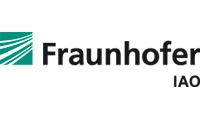2018 Work Research Conference

On December 4 and 5, the Science Year 2018 will culminate with the 2018 Work Research Conference at the Haus der Wirtschaft in Stuttgart. The Fraunhofer Institute for Industrial Engineering IAO is staging the event.
The Germany Federal Ministry of Education and Research (BMBF) will be represented by its parliamentary State Secretary, Dr. Michael Meister, who will also hold the opening address. Dr. Nicole Hoffmeister-Kraut, Minister of Economic Affairs, Labor and Housing for the state of Baden-Württemberg will be hosting the event at the venue.
“The Science Year 2018 is all about how working environments are set to change in the future, and the role that science and research will play in handling these changes. At the Work Research Conference in Stuttgart, participants will gain insights into the look and feel of tomorrow’s working world.
The Science Year follows three key principles: ‘Experience. Learn. Shape.’ These are reflected in multiple aspects of the agenda for this year’s conference,” explains Dr. Otto Bode, who manages the Science Year 2018 project group at the Federal Ministry of Education and Research.
“We need to redefine the roles that humans and machines will perform in the working environment of the future. While machines can intelligently interpret and evaluate data, draw conclusions and plan actions, human strengths lie in creative, innovative processes. And that’s not expected to change in the decades to come,” says Prof. Wilhelm Bauer, Director of Fraunhofer IAO.
That’s why the 2018 Work Research Conference is set to focus on the impact of technical innovations and the relationship between the economic and social influence of new technologies. The aim is to strike up a joint and direct dialogue with a professional audience and to facilitate a universal exchange of information.
Modular conference program with international perspectives
As one of the largest events on the 2018 Science Year calendar, the 2018 Work Research Conference at the end of this year offers participants a diverse program. The agenda comprises workshops, keynote speeches, a dinner speech, group discussions, exhibitions, a road show, a tour of the Future Work Lab and a virtual world tour.
Held for the very first time in this format, the latter marks a digital first:
a 24-hour virtual tour of the world through different time zones. The tour will feature a total of twelve different contributions from leading academic institutes based all around the globe, streamed live to the conference venue. The contributions will take different forms, including workshops and presentations, and participants can expect them to be highly informative.
Seven topics with a total of 16 workshops to chose from
On both conference days, eight different workshops will run in parallel – one for each of the overarching topics. The themes will also be echoed in the accompanying exhibition at the venue. One of the key topics is skills development in the work process. The associated workshops cover learning through work, skills management in demographic change, qualification and the securing of skilled personnel. Another area of focus is preventive health promotion in the workplace. In these workshops, participants work on topics such as structural prevention, ergonomic and healthy workplace design, and development models for personnel and organizations experiencing digital transformation.
As digitalization affects all aspects of how working environments will need to change, the associated range of topics is extremely wide. Other points of focus on both conference days include the working cultures of the future, designing the digital world of work, innovation through new work processes, value-creation networks and human-machine interaction for collaboration in the new digital environment.
Take a tour of the Future Work Lab to experience future working environments firsthand
To help participants better understand and experience future working environments for themselves, Fraunhofer IAO is inviting the guests to take a tour of the Future Work Lab – an innovation laboratory for work, people and technology. On the second day of the event, a shuttle service will run between the venue and the Future Work Lab. A visit to the Future Work Lab also marks the last stop on the virtual world tour.
Prior to the start of the event, information for those attending the 2018 Work Research Conference will be published on the Fraunhofer IAO app, including an overview of all the conference modules.
Registration for the Work Research Conference on December 4 and 5, 2018, is open now.
With funding from the German Federal Ministry of Education and Research (BMBF), the event is coordinated by Project Management Agency Karlsruhe (PTKA).
Bernd Dworschak
Team Leader Competence Management
Fraunhofer IAO
Nobelstraße 12
70569 Stuttgart
Phone +49 711 970-2042
E-Mail bernd.dworschak@iao.fraunhofer.de
https://www.wissenschaftsjahr.de/2016-17/wissenschaftsjahr-2018/das-wissenschaft…
https://www.iao.fraunhofer.de/lang-de/forschung/1968-wissenschaftsjahr-2018-arbe…
https://www.iao.fraunhofer.de/lang-de/veranstaltungen/eventdetail/492/-/arbeitsf…
https://www.iao.fraunhofer.de/lang-en/labs-equipment/1292-future-work-lab.html
Media Contact
All latest news from the category: Event News
Newest articles

Machine learning algorithm reveals long-theorized glass phase in crystal
Scientists have found evidence of an elusive, glassy phase of matter that emerges when a crystal’s perfect internal pattern is disrupted. X-ray technology and machine learning converge to shed light…

Mapping plant functional diversity from space
HKU ecologists revolutionize ecosystem monitoring with novel field-satellite integration. An international team of researchers, led by Professor Jin WU from the School of Biological Sciences at The University of Hong…

Inverters with constant full load capability
…enable an increase in the performance of electric drives. Overheating components significantly limit the performance of drivetrains in electric vehicles. Inverters in particular are subject to a high thermal load,…





















